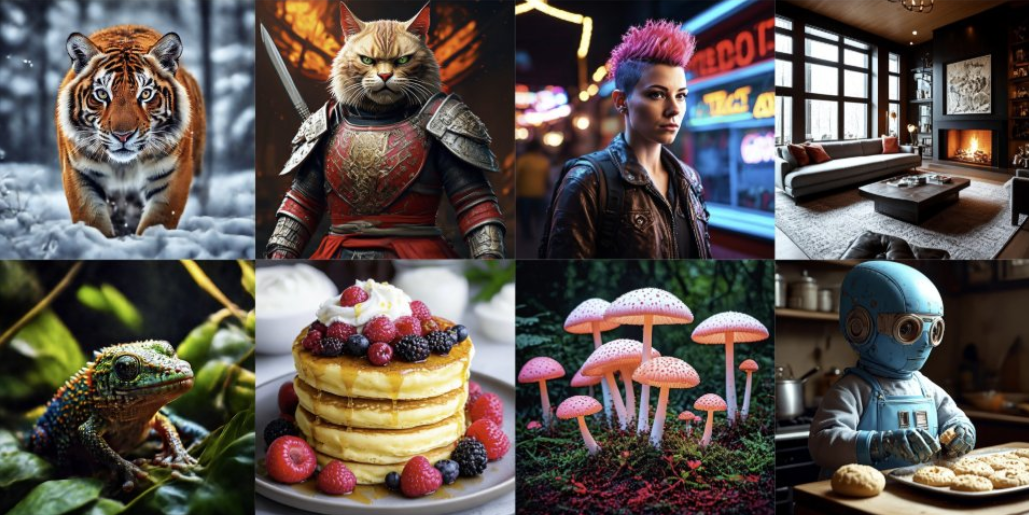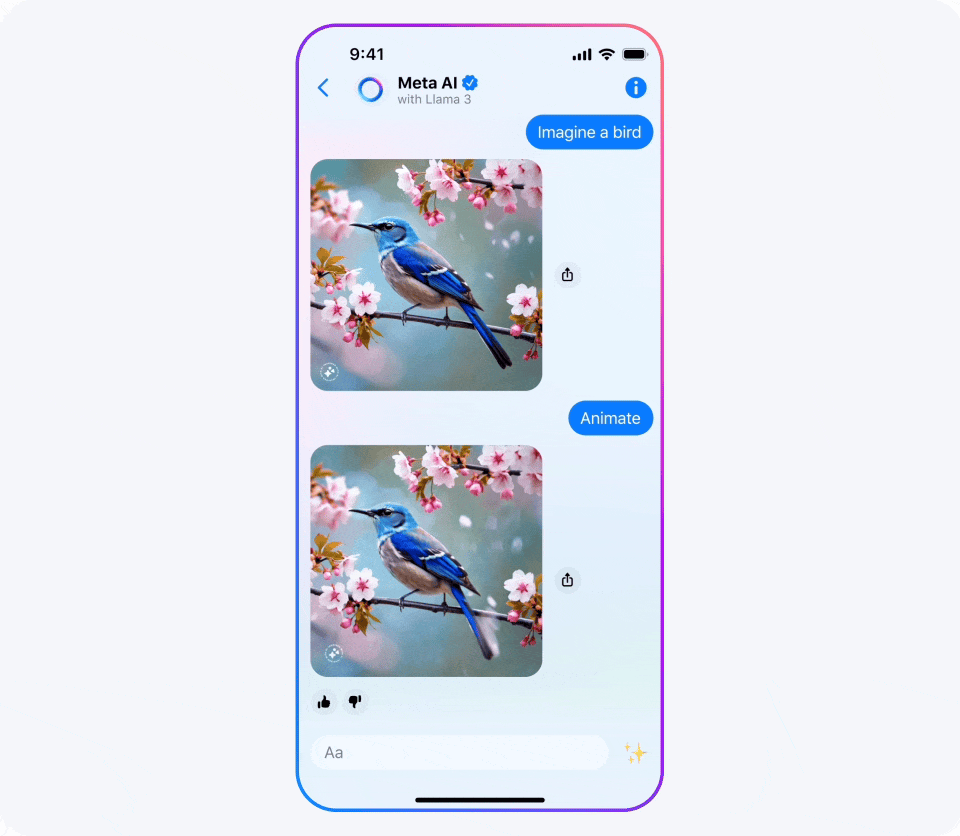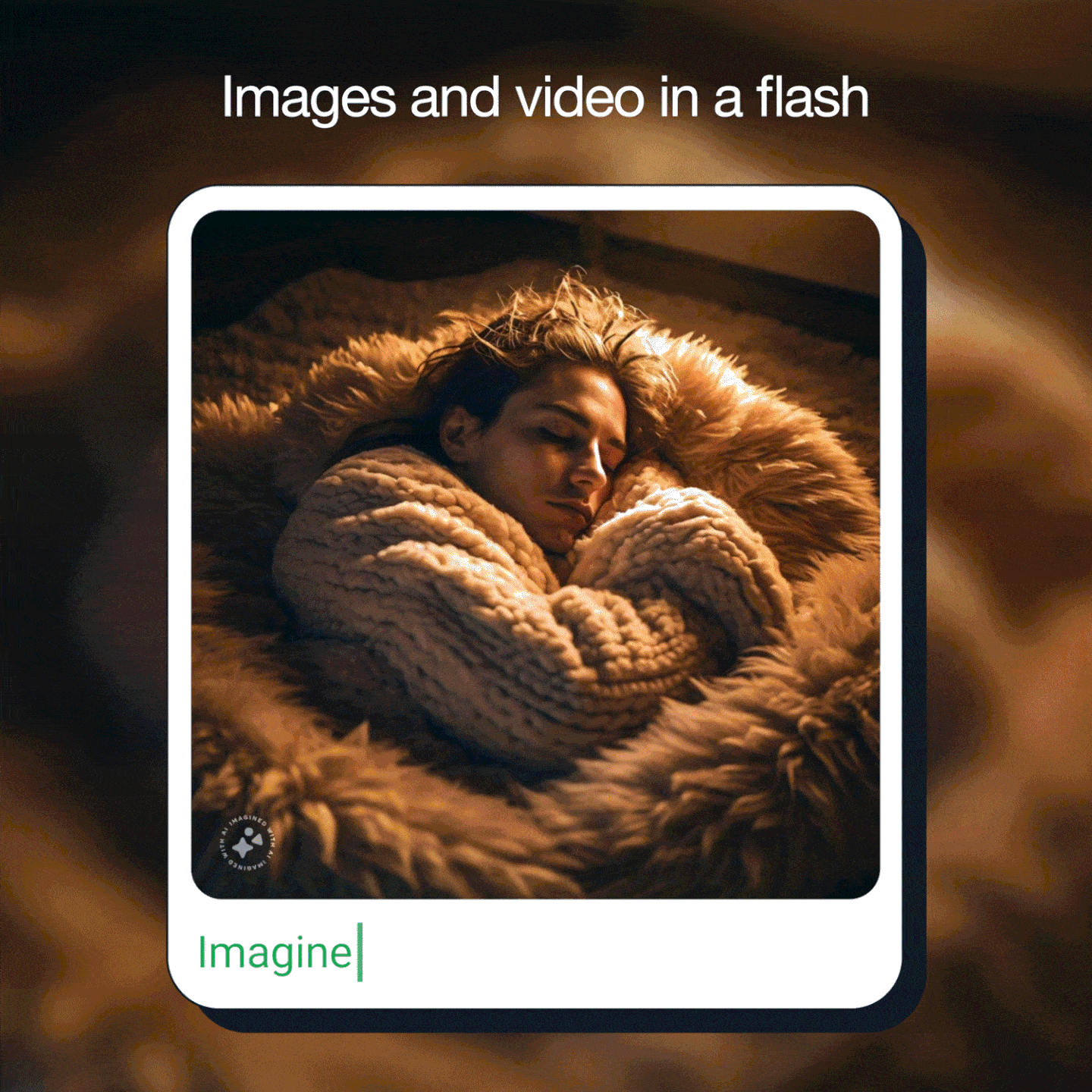
Not remotely dissuaded by the hiccups with the launch of AI stickers in Facebook with Llama 2 last year (remember those gun-toting Super Marios?), Meta is showcasing the capabilities of its new model, Llama 3, with real-time AI image generation in WhatsApp.
Open source and free for both research and commercial use, Llama 3 is being billed as the best free large language model, surpassing Microsoft's Co-Pilot and Google's Gemini. Part of its strength is its integration in widely used Meta apps, including WhatsApp. And that integration now involves super-fast image generation.

Meta says it will soon roll out real-time AI image generation in beta for WhatsApp users in the US as well as in Meta AI for the web. Images will appear and change as users write prompts, immediately changing to reflect new words added to the prompt.
“Imagine a soccer game on Mars,” begins the prompt in the demonstration video shared by Meta, and the AI-generated image appears to immediately change to show a football pitch in an alien landscape. It's the fastest AI image generation that we've seen so far. Of course, speed does not mean quality, and we've yet to see how Llama 3 image generation compares to the likes of Midjourney and OpenAI's DALL-E 3.
Meta says images produced by Llama 3 are “sharper and higher quality” than in Llama 2, and the model is also better at rendering text – an improvement we've seen across almost all of the major AI image generators in the most recent updates. The model can also animate images and turn them into GIFs.

The new features are currently available to users with access to the beta version of Meta AI. As well as in WhatsApp, Meta’s AI assistant is being rolled out in Instagram and Facebook in English in Australia, Canada, Ghana, Jamaica, Malawi, New Zealand, Nigeria, Pakistan, Singapore, South Africa, Uganda, Zambia and Zimbabwe. There is also now a standalone browser-based version at Meta.ai, again limited to certain countries.

Meta has also launched two freely available open-source Llama 3 models for developers: an 8-billion parameter and a 70-billion parameter model are both accessible on major cloud providers.
We've seen plenty of controversy over AI image generation in the past week, from Netflix accused of using AI imagery in a documentary to the terrifyingly dystopian Miss AI beauty contest.







